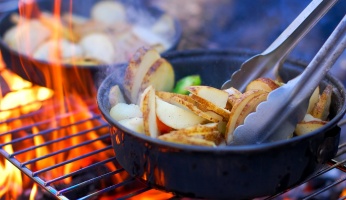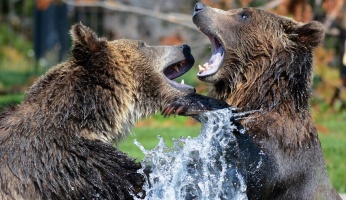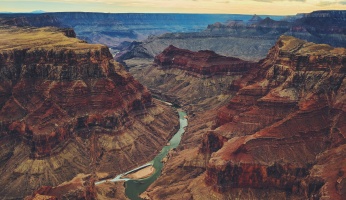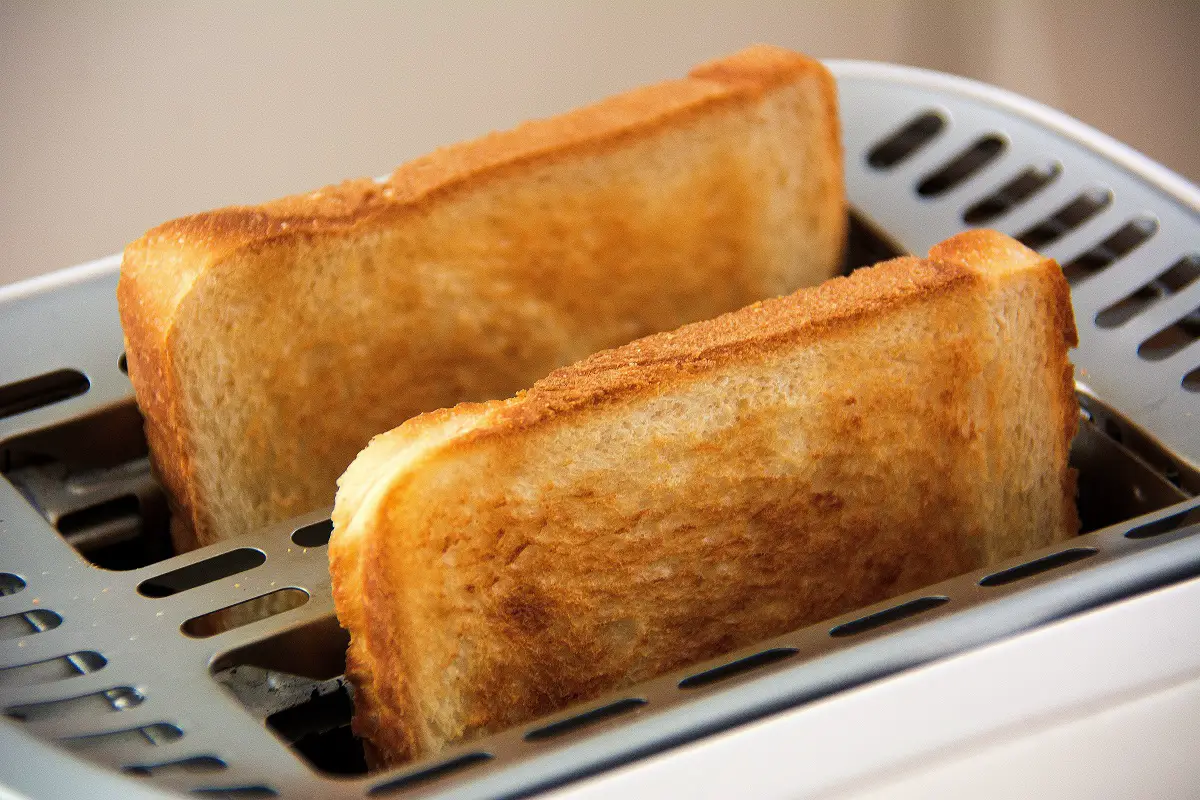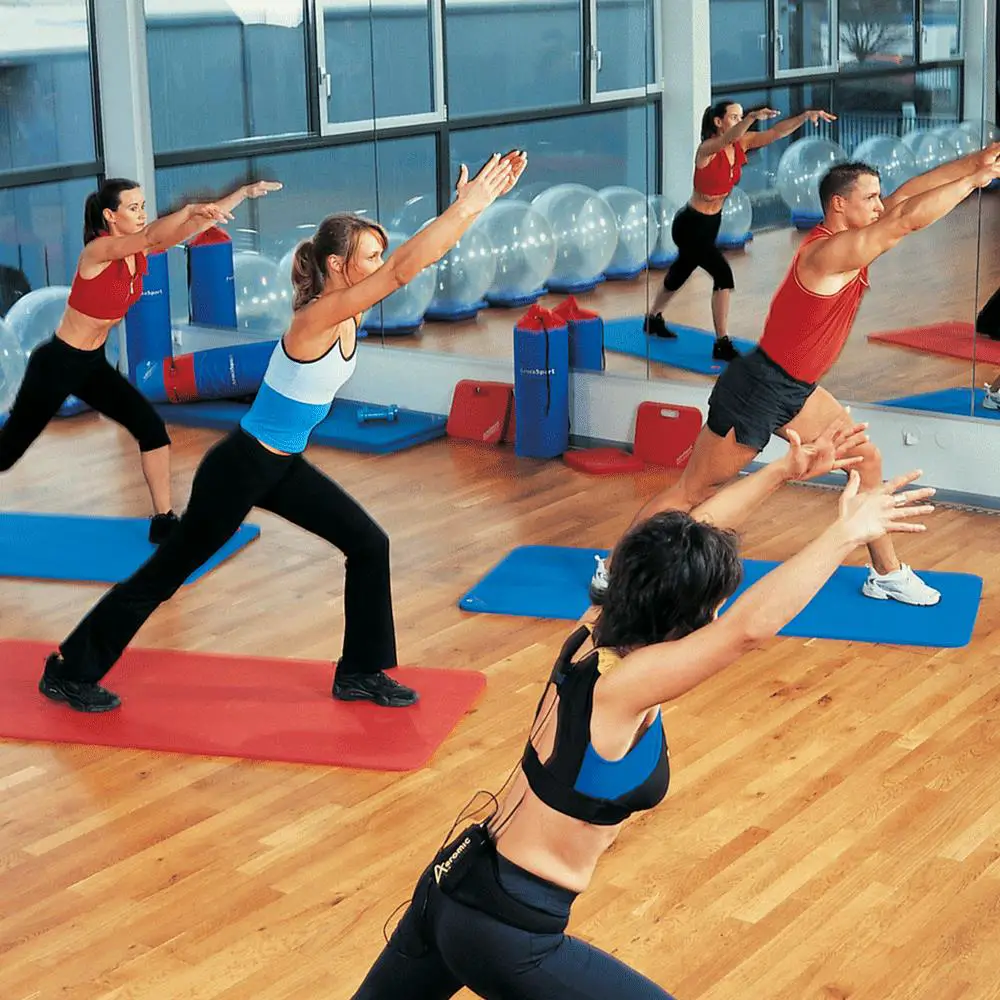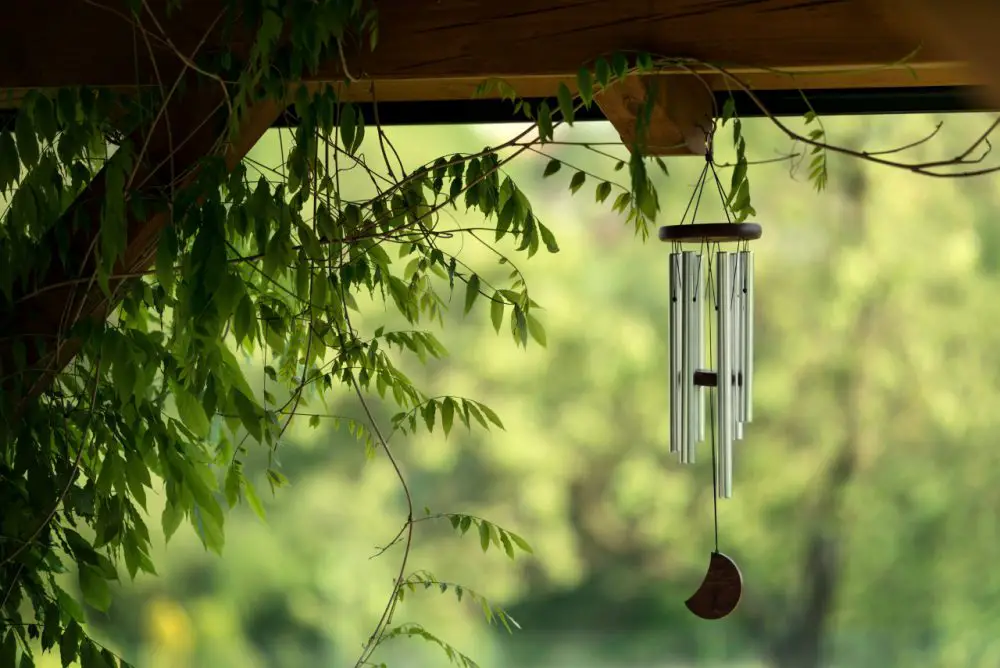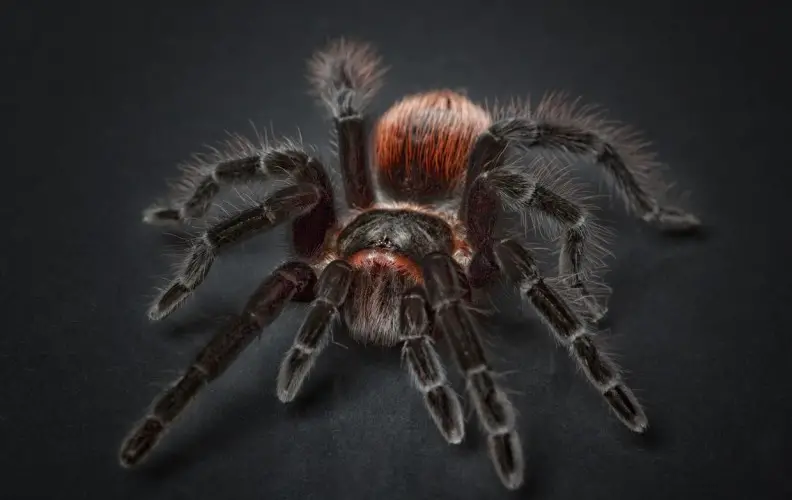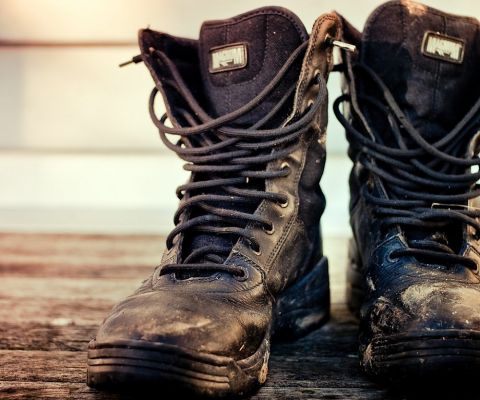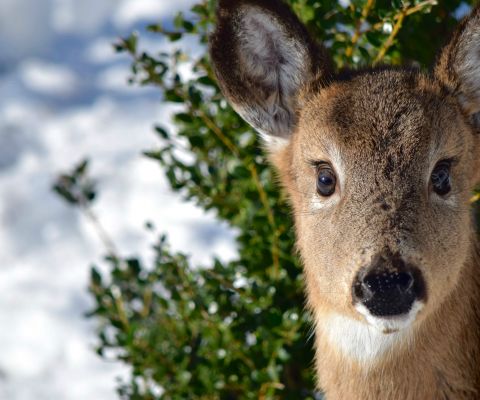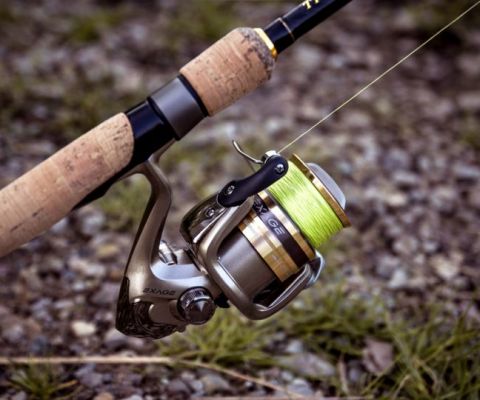Camping with Kids: A Complete Guide
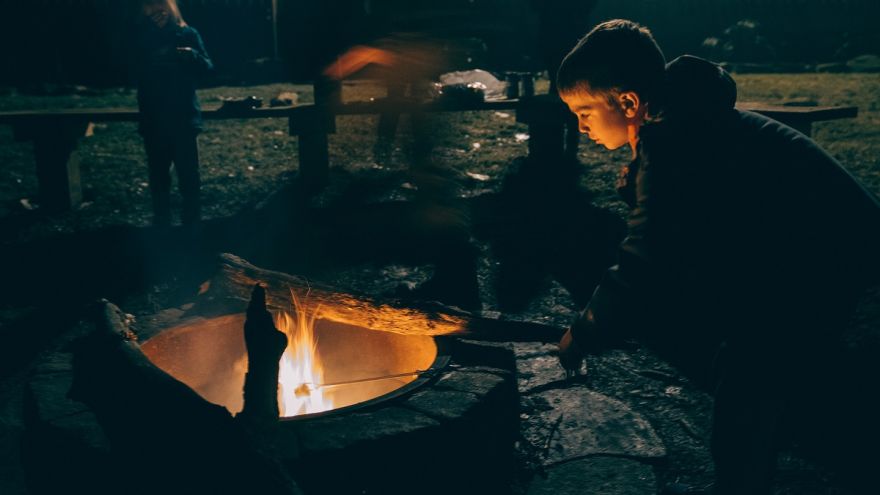 Camping with Kids: A Complete Guide
thegearhunt.com
Camping with Kids: A Complete Guide
thegearhunt.com
Going camping with your kids can be both easy and fun. Here is how to ensure that both you and your children have a great time.
Camping is sensible now more than ever. It is an easy and inexpensive way to have a family activity in today’s tight economy, as well as a way to make sure that your kids get what is difficult today – time outside that isn’t structured. Time away from the various screens in our lives. Time away from an abundance of after-school activities and homework. Camping can provide them with a chance to actually be a kid, and that is so important. To that end, here are just a few pointers that are designed to make your stay in the great outdoors one that is enjoyable, safe, and fun.
Choose the Ideal Spot
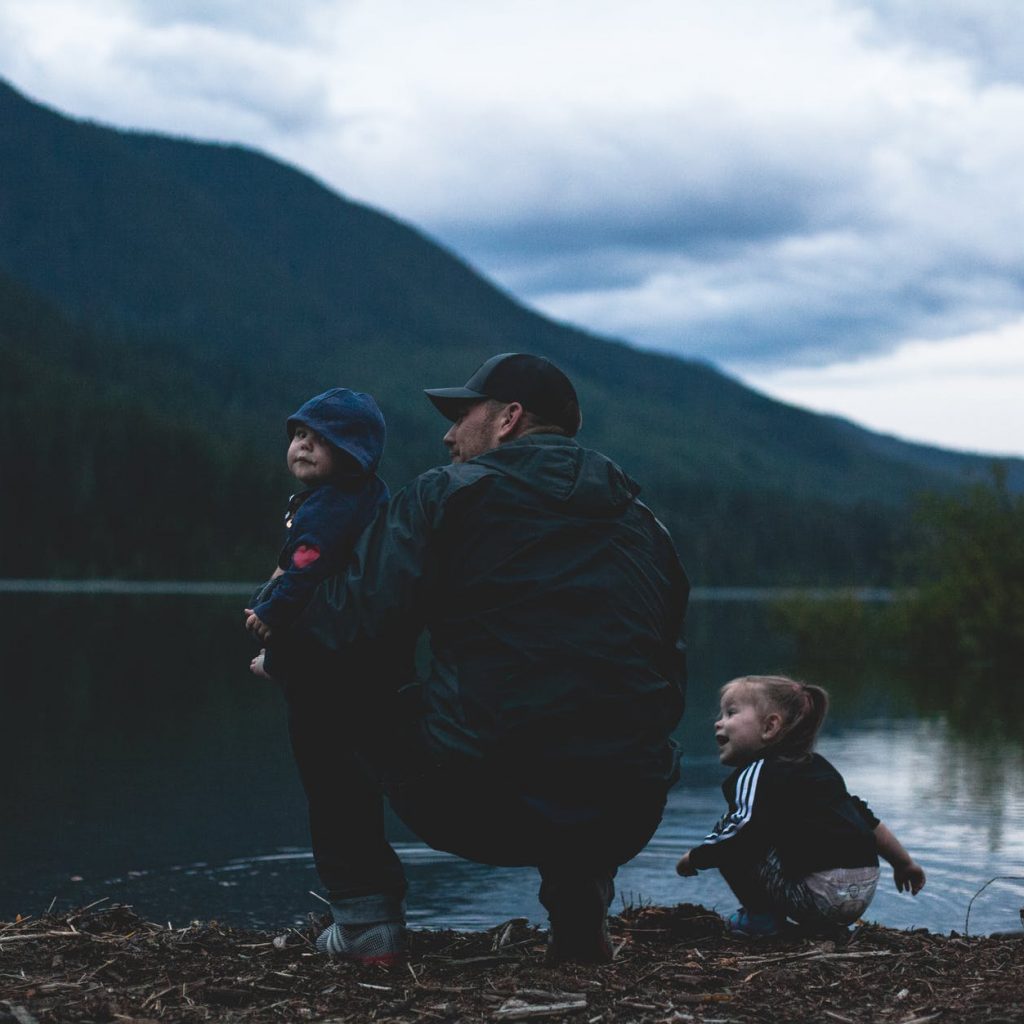 Some campsites are nothing more than a patch of ground that is just perfect to pitch a tent on, while others have been developed a bit and are equipped with ready to go fire pits, running water, and toilets. If you are new to the camping experience, you might want to start with a campground that has been developed. Most of these also have attendants that are on call in case you need anything. You can go to sites like Recreation.gov and ReserveAmerica.com for suggestions in your chosen area.
Some campsites are nothing more than a patch of ground that is just perfect to pitch a tent on, while others have been developed a bit and are equipped with ready to go fire pits, running water, and toilets. If you are new to the camping experience, you might want to start with a campground that has been developed. Most of these also have attendants that are on call in case you need anything. You can go to sites like Recreation.gov and ReserveAmerica.com for suggestions in your chosen area.
Once you have located a campground or site that you think will meet your needs, consider the type of experience you are looking for. For example, if you will be bringing bikes, you might want to look for a campground equipped with roads that are paved as opposed to those with gravel roads. If you have toddlers, you might also want to check campground maps for places that are safe and away from things like drop-offs or water that can be hazardous.
Another good resource for parents is online parent groups. You can often find recommendations for safe camping spots there. Once you have narrowed it down to a few, you might call the campground to inquire about the best kid-friendly areas on their property. They can also let you know when their peak times are so that you can avoid being surrounded by strangers.
Pro Tip: If you are a first-time camper, try to look for a campground that is near a town. If you do this, it can be easy to head to town for dinner and ease things up a bit for mom and dad. It can also mean less stress if you come to find that you have forgotten something.
Involve the Kids
Most kids don’t need too much convincing when it comes to going on a camping trip. After all, there will be a large amount of space for them to run around in. That being said, including them when it comes to planning can help to ensure that they are engaged and enthusiastic.
You can make choosing a spot to camp into a family activity. Get out your maps and talk about where you might have been and where each member of the family might like to go and why. Plan the menu for the trip together, allowing everyone to add a special snack to the grocery list. You might also let the kids sleep in their tent, inside the house, before the trip to get them acclimated to it.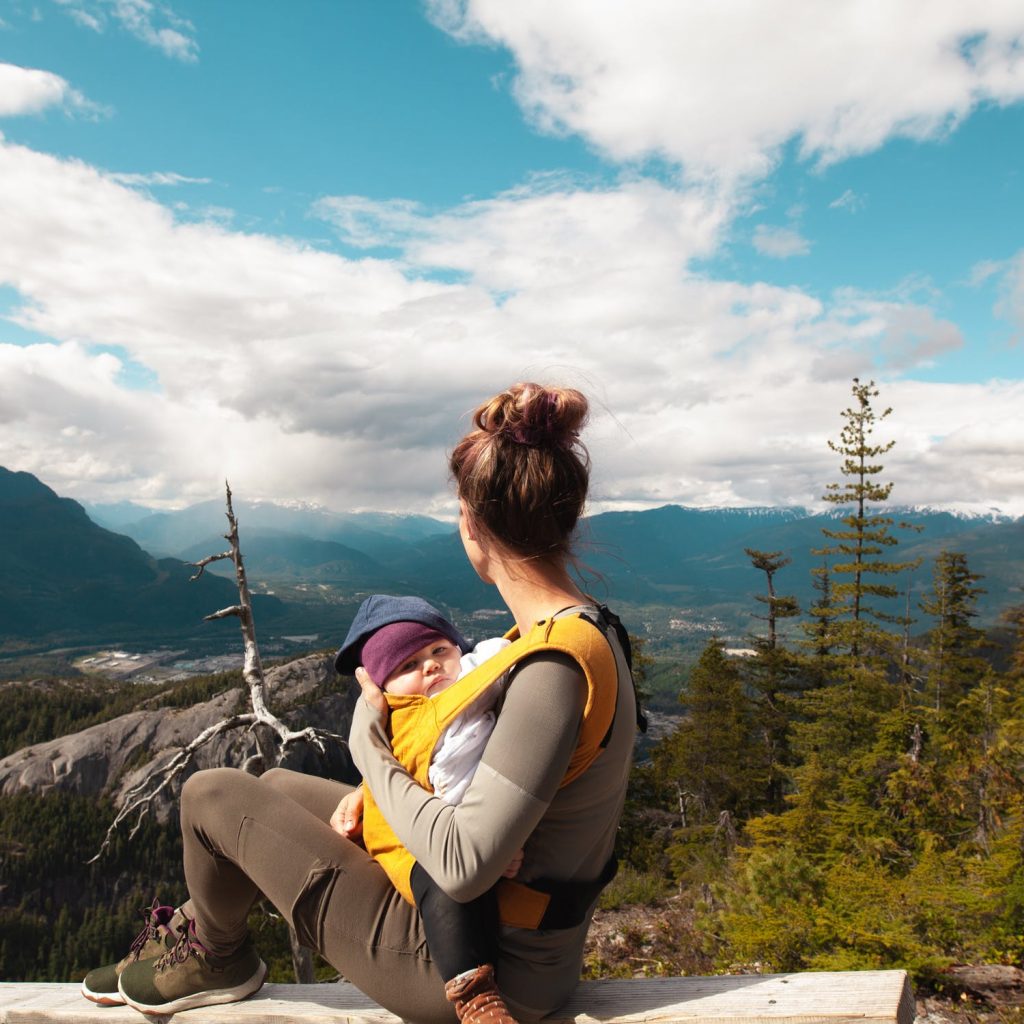
Have the kids do their own packing – but supervise them. Allowing them to choose what they will bring can allow smaller children to be more comfortable while teaching the older children about how to plan for things. You can always keep the amount they pack in check by limiting the size and number of bags they will be allowed to bring.
Once you get to the campgrounds, allow the older kids to select a spot for the tent before having everyone help with setting it up. Even kids as young as 3 years can assist with slipping the poles for the tent into the fabric. There are also many other tasks that kids can help with. Some of them include getting water, gathering firewood if you are in a spot that allows fires, blowing up air mattresses, and getting sleeping bags out, etc.
Pro Tip: If you have more than 1 child, you can turn setting up the camp into a game or competition by seeing how fast they can accomplish different tasks.
Gearing Up
There are a couple of important things to purchase that have both safety value and kid appeal. Things like Camelbak hydration systems are good for keeping everyone moving while hiking. Allowing the kids to have one makes them feel like they have importance while also making sure that they stay hydrated. You might also consider getting a few headlamps. They make reading in tents more fun while also making walking at night safer.
Glow sticks also come in handy. They provide light while kids have a ball playing with them. Make sure that you not only bring enough but that you also have enough of the different colors. Glow necklaces also can help keep track of smaller children when the sun goes down.
The Power of the List
If you check online, there are quite a few checklists that have been designed specifically for people who will be taking a camping trip with their children. It is easy to find one and download it, and then you can personalize it so that it will meet your needs and those of your children. Maybe a few days before the trip, you can tape it right to the kitchen counter and designate a spot to stack your gear in. Check off each item as it goes in the pile. While you are packing, you can have one of the children read the list to you and check items off the list as you put them into first a bag or bin, and then the car.
Sleeping
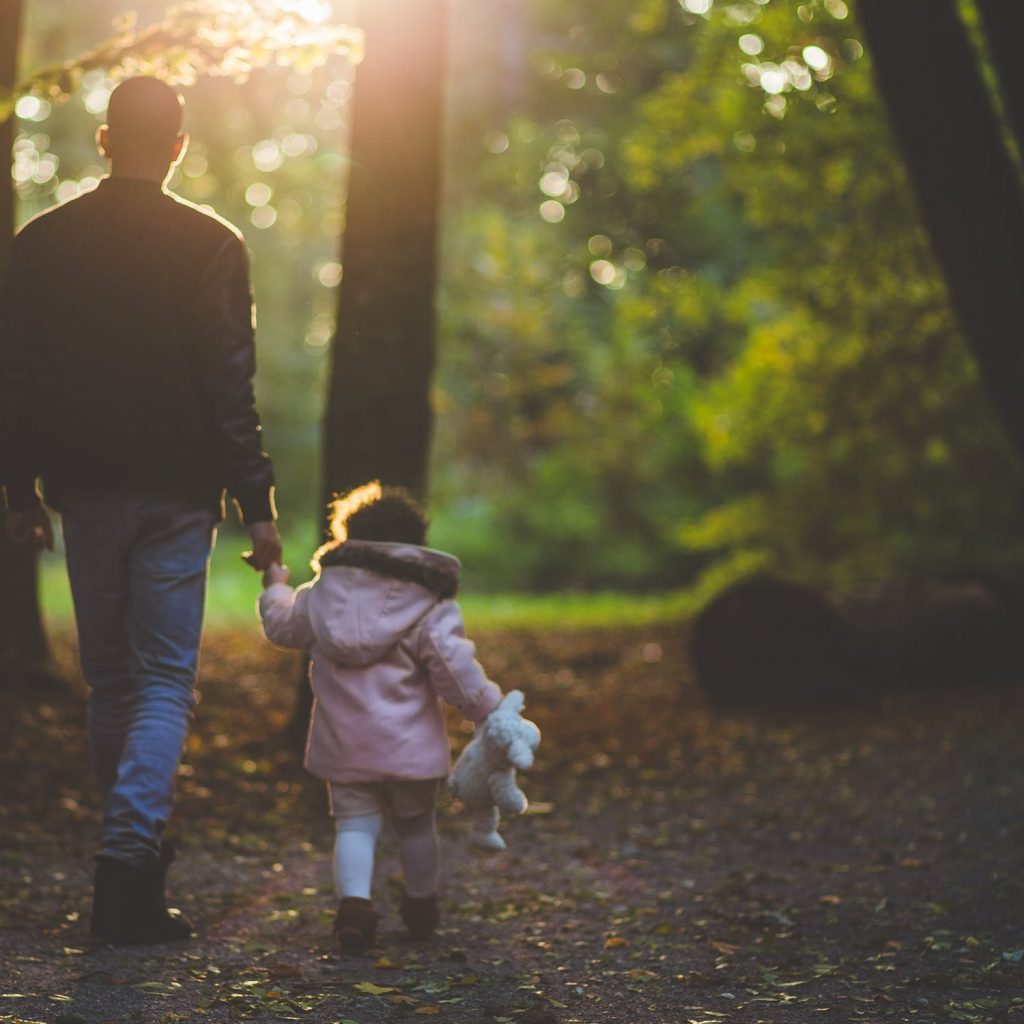 Camping these days isn’t really roughing it. Especially if you have the right gear. You need to get a good pad for sleeping on as well as a great tent. This is so that you won’t be uncomfortable. As far as tents go, get one that can accommodate at least 4 people. It will need to be large enough so that everyone will fit and still have room for your gear. You should look for one that has 2 doors so that nobody has to be crawled over when someone needs to get out of the tent. Also look for one that offers a rain fly that gives full coverage. This will keep everyone dry and snug when there is rain and wind, along with a bit of netting so that you can catch the breeze at night when the weather is warm. Keep in mind that when it comes to tent poles, aluminum ones are lighter and more durable than poles made from fiberglass.
Camping these days isn’t really roughing it. Especially if you have the right gear. You need to get a good pad for sleeping on as well as a great tent. This is so that you won’t be uncomfortable. As far as tents go, get one that can accommodate at least 4 people. It will need to be large enough so that everyone will fit and still have room for your gear. You should look for one that has 2 doors so that nobody has to be crawled over when someone needs to get out of the tent. Also look for one that offers a rain fly that gives full coverage. This will keep everyone dry and snug when there is rain and wind, along with a bit of netting so that you can catch the breeze at night when the weather is warm. Keep in mind that when it comes to tent poles, aluminum ones are lighter and more durable than poles made from fiberglass.
As far as sleeping pads go, it is worth it to spend a bit more to get one that is good quality. They make sleeping in a tent or under the stars as comfortable as sleeping in your bed.
Pro Tip: Be sure to take your pillows from your bed. They are so much better than having to suffer through the night with a jacket that is rolled up.
Quick and Easy Meals
Campfire cooking is a great experience for kids. This is because it is an activity that is hands-on and it is easy to make the food taste scrumptious without having to put in a ton of work.
Before you leave your home, do a bit of food prep. Things like chopping any vegetables you might need and then seal them into plastic bags, mix up your pancake batter and then store it in a Tupperware or glass jar (pancake batter will keep for as long as a week if you keep it in a cooler), make your marinades for your meat (will keep for as long as 5 days) and store it in something similar to the pancake batter.
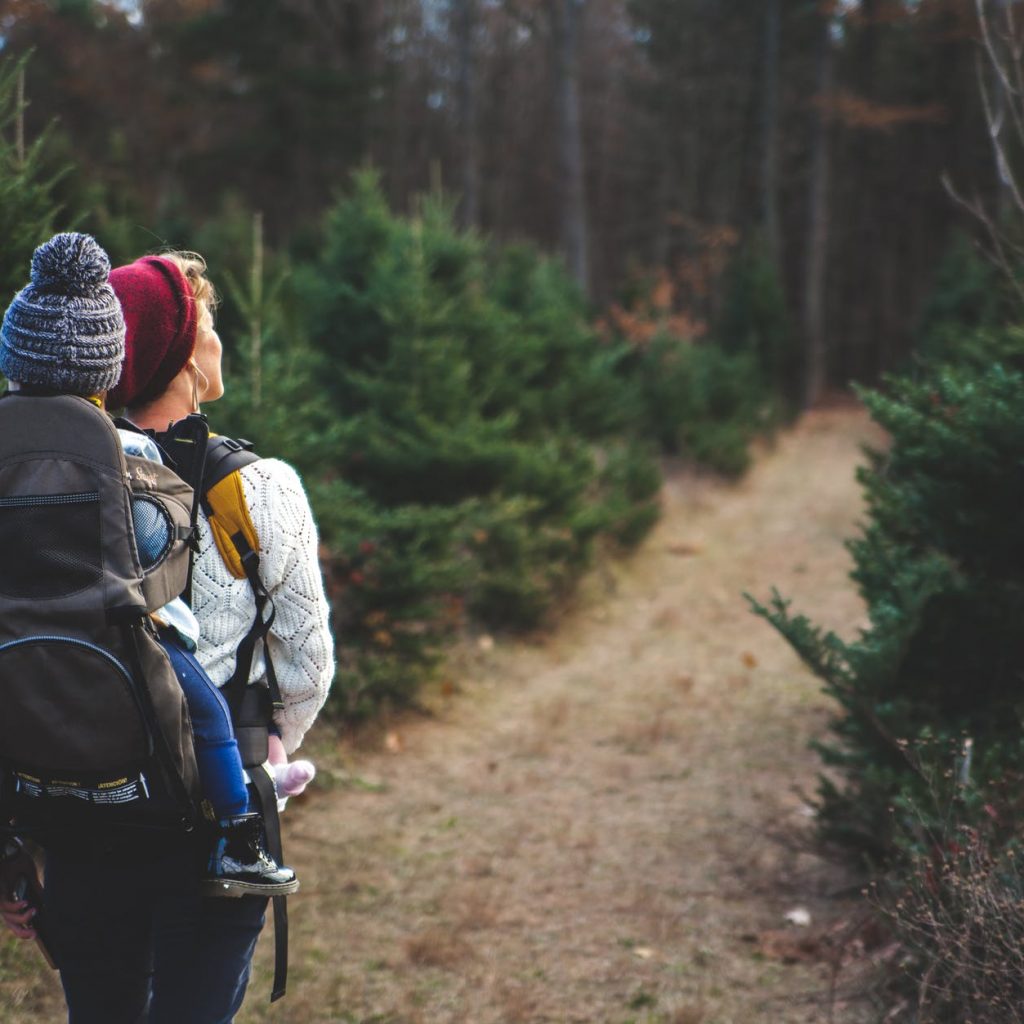 When you cook at the campground, anything that you can put on a long fork will be great because the kids can cook it. Yes, hot dogs are great, but you can also mix it up a bit when you cook things like mushrooms, peppers, and Italian sausage kebabs, or when you grill fruits like plums, peaches, and pineapple. Another fun option is to make up some hobo packs. This is veggies like green beans, sweet potatoes, potatoes, carrots, or tomatoes, with fish or meat in aluminum foil and nestle them right in the coals to cook them. The added bonus for this is that there aren’t any pots or pans to clean up after dinner. For dessert, you can always have the oldie but goodie – s’mores.
When you cook at the campground, anything that you can put on a long fork will be great because the kids can cook it. Yes, hot dogs are great, but you can also mix it up a bit when you cook things like mushrooms, peppers, and Italian sausage kebabs, or when you grill fruits like plums, peaches, and pineapple. Another fun option is to make up some hobo packs. This is veggies like green beans, sweet potatoes, potatoes, carrots, or tomatoes, with fish or meat in aluminum foil and nestle them right in the coals to cook them. The added bonus for this is that there aren’t any pots or pans to clean up after dinner. For dessert, you can always have the oldie but goodie – s’mores.
Pro Tip: Bring some utensils with long handles, some gloves that are fireproof, a good hot dog or marshmallow fork, and a pair of tongs.
Be Safe
Statistically speaking, kids really don’t injure themselves anymore on trips like this than they do when they are at home. However, safety is always on a parent’s mind. You might worry that your child will get hurt or sick. Choosing a place to camp that is close to a town or city that has medical facilities can give you peace of mind. Also, parents can get certified in CPR and/or take a class in first aid (whether or not they will be camping). Regardless, you should always check to see if there is a landline at the campground so that if there is an emergency, you can call 911. You can also check with the staff at the campground regarding any conditions or wildlife that can be potentially dangerous.
Additional Safety Tips
- Make sure that you pack a great first aid kit. You can either buy one that is already assembled, or you can assemble one yourself with any medications that you or your family might need.
- As soon as your gear is on the ground at the site, walk around with everyone together. Make sure that as you are doing this, you establish safety boundaries and strict rules. Use landmarks that are easy to identify, like trees that have fallen, when you are marking areas that are off limits.
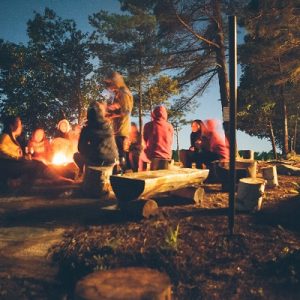
- Point out any possible dangers, such as poison oak or poison ivy, and remind the children that they aren’t to touch or feed any wild animals. They also need to be told to pay attention to where they put their hands and feet.
- Go over fire safety rules. Children need to always be sure that they remain a good distance away from the fire so as to avoid tripping and falling into it. They also don’t need to put anything in the fire unless they are supervised by an adult. Involve the children when it comes to building the fire so that they understand that it isn’t something that is abstract, and it needs to be respected.
- Give all of the children a whistle that they can wear around their neck. If they become separated from the group, they need to find a nearby tree, sit down at the base of it, and blow their whistle a quick 3 times. Adults then need to return that whistle with a single whistle to alert the children that they are coming. Remember that a whistle can be blown for a longer period of time than you can yell, and its sound is a lot more distinctive than simply a raised voice.
- If you will be camping during tick season, make sure that everyone wears long pants that are tucked into their socks.
Have a Great Time
When it comes to the kids, get over the dirtiness. Getting a little dirty hasn’t ever killed anyone. You are in the great outdoors and they will have grimy faces and hands, and that is alright. Make them clean up with wipes before hitting the sack and then get them really clean once you return home.
Sources
- WikiHow, How to Camp with Kids
- Love The Outdoors, Camping with Your Kids
- BuzzFeed, 31 Things That Will Make Camping with Your Kids so Much Easier





